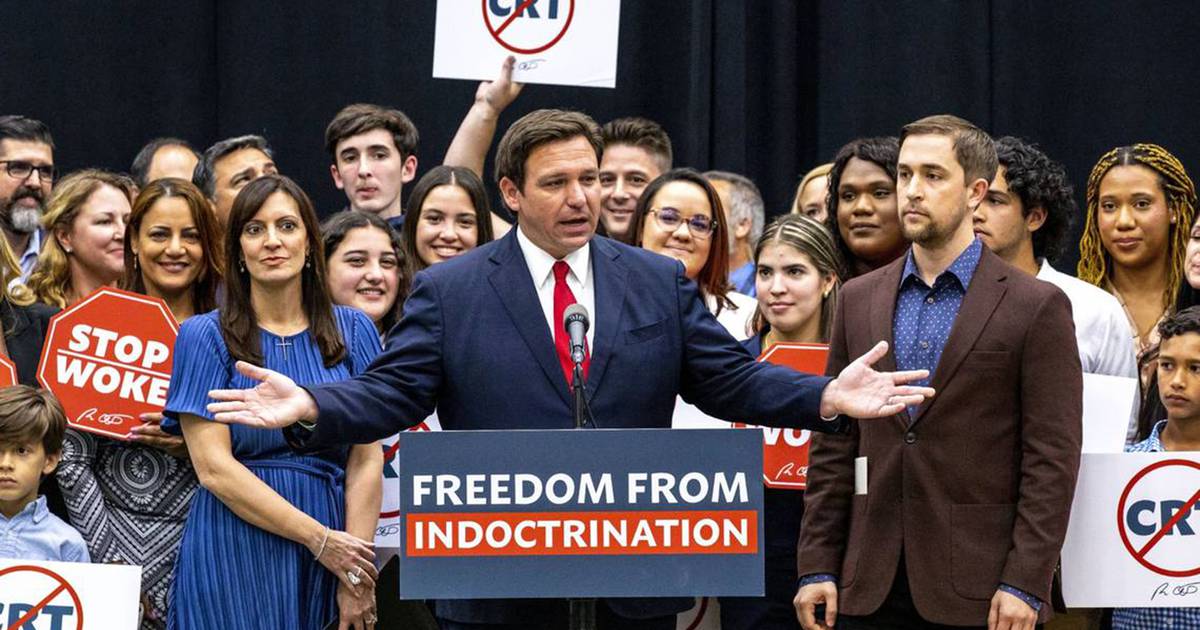Florida has proven its commitment to freedom

Every governor likes to claim that his or her state is the best. This is especially true of governors who aspire to be president. Thus, in his second inaugural speech, Gov. Ron DeSantis said “Florida is leading the nation” in net in-migration (when more people move in than out), economic growth, new business formation, tourism and economic freedom.
He might have started with economic freedom. After all, many of the other achievements he touts depend upon it. What is economic freedom? How is it measured? And is DeSantis right to take credit for it?
Simply put, people have economic freedom when they may choose for themselves to voluntarily exchange with whomever they wish on whatever terms they like, provided their actions do not infringe on the liberties of others.
For many, perhaps most of us, this sort of freedom is intuitively and philosophically appealing. But economists have long emphasized that it has another benefit: Economically free people tend to be prosperous people. This contention is ancient. Lao Tzu, the Chinese contemporary of Confucius, argued in 600 BC that “The more restrictions and limitations there are, the more impoverished men will be.” Similarly, the founding father of modern economics, Adam Smith, wrote in 1755 that “Little else is required to carry a state to the highest degree of opulence from the lowest barbarism, but peace, easy taxes, and a tolerable administration of justice; all the rest being brought about by the natural course of things.”
![]()
Though these thinkers and others offered plenty of reasons to believe that free people would prosper, it was not until the last few decades that economists have been able to test this hypothesis.
After a series of conferences with eminent economists, including three Nobel laureates, the Fraser Institute in Canada first published the Economic Freedom of the World index in 1996. Updated annually, the index uses publicly available data to measure the degree of economic freedom in 165 jurisdictions worldwide.
It’s been cited in more than 1,300 peer-reviewed papers and incorporated in more than 800 academic studies. Most of these studies find that economic freedom is, indeed, associated with higher levels of prosperity, just as Lao Tzu claimed.
The Fraser Institute also publishes a subnational version of the index called the Economic Freedom of North America, which gauges economic freedom in each US and Mexican state and Canadian province by measuring government spending, taxation and regulation. In both the global and North American indexes, the institute also uses historical data to estimate rankings prior to our first publication in 1996. In the latest edition of the North American report, Florida did indeed rank first among US states, thanks to its low taxes and modestly sized public sector.
Moreover, among 155 research papers using the subnational index, two-thirds find that economically free states are more likely to experience “good” outcomes. For example, citizens in states with more economic freedom enjoy higher wages, greater income mobility, more net in-migration, more entrepreneurial activity, higher per-capita Gross State Product, and faster growth at both the top and the bottom of the income distribution . They are also less likely to experience homelessness or unemployment. Researchers also find that economic freedom is associated with good non-economic outcomes such as greater tolerance, less recidivism and more happiness. People really can go from barbarism to opulence if they are set free.
Though DeSantis was eager to take credit for Florida’s No. 1 status, Floridians have enjoyed high levels of economic freedom for decades. In fact, the state ranked first in economic freedom in the US for the first time in 1994 when Democrat Lawton Chiles was governor. If politicians everywhere took economic freedom more seriously, they’d all have more to brag about.
Matthew D. Mitchell is a senior fellow in the Center for Economic Freedom at the Fraser Institute and a senior affiliated scholar at the Mercatus Center at George Mason University.
Comments
Post a Comment